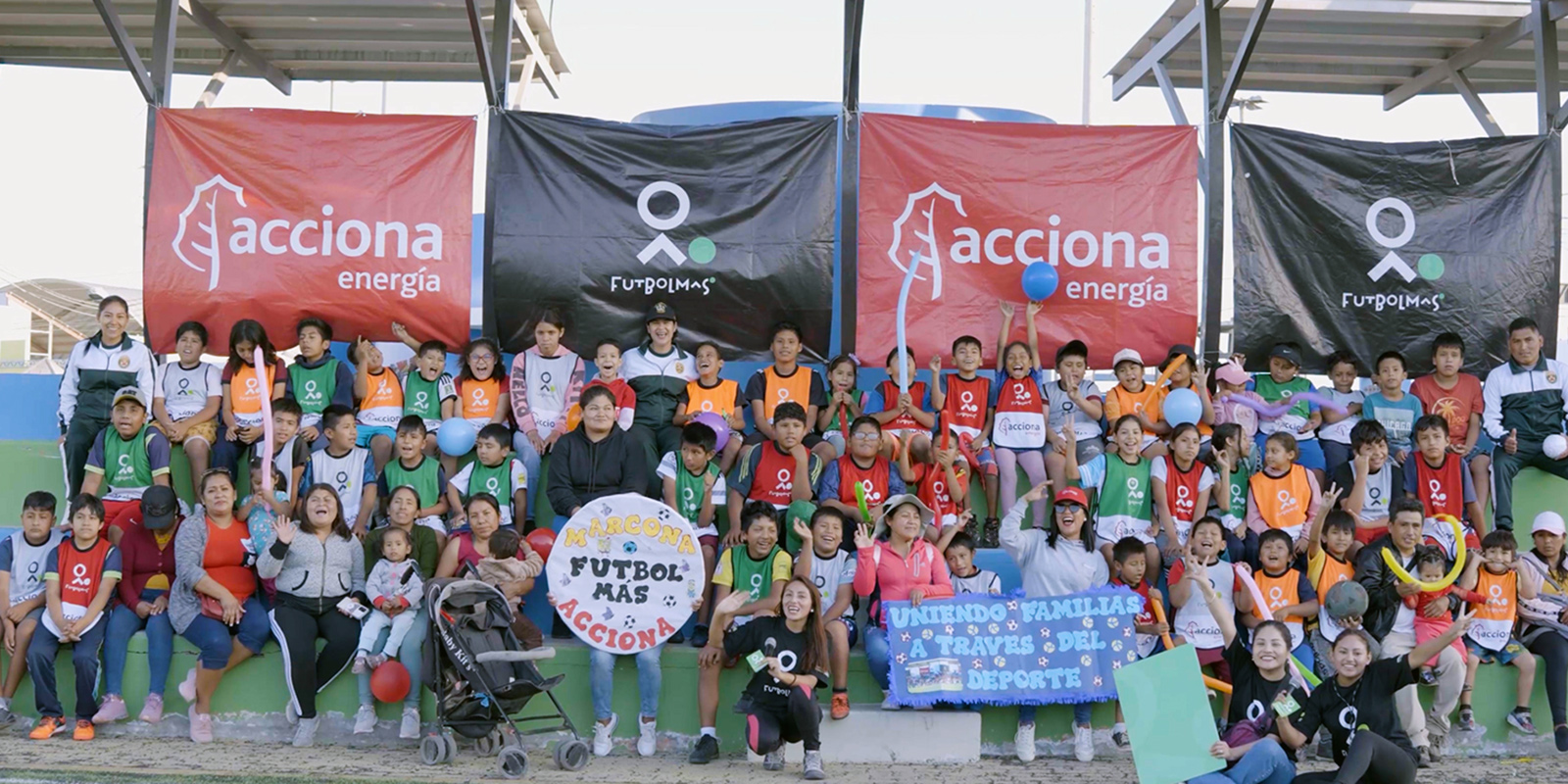- These investments are part of the company’s Social Impact Management (SIM) of its projects for 2023

ACCIONA Energía has invested more than four million euros in social initiatives carried out in 2023 in the local communities where it operates its renewable energy projects. The company’s Social Impact Management system led to 217 actions during the year, benefiting nearly 300,000 people in 12 countries on five continents.
Achieving quality education in the areas where the company operates has been a priority in 2023, as in previous years. This can be seen in more than 60 initiatives focusing on Sustainable Development Goal (SDG) 4 (Quality Education). The second goal with the most actions relates to SDG 8 (Decent Work and Economic Growth), with 25 initiatives that directly contribute to the economic development of communities. Health and Well-being (SDG 3) and Access to Clean Energy (SDG 7) also feature strongly and were addressed in 32 initiatives.
For example, the most notable initiative in each of the countries involved is listed below:
In the United States, more than €100,000 was invested to support women and children suffering abuse through The Crisis Center (Wharton County, Texas), providing them with medical assistance and emergency shelter. Specifically, ACCIONA Energía's contribution was used to renovate eleven rooms in the shelter, make the medical centre's waiting room warmer, provide the kitchen with better access and a space for families, set up a parking area to ensure the safety of residents and create a sensory playground for children's therapy.
In Australia, the most prominent initiative aimed at bringing the MacIntyre wind farm closer to the community involved site visits and public discussions to build stakeholder trust and support. These kinds of initiatives help to build a good relationship with the local community from the outset, in which transparency is essential. Of almost 1,000 participants, 90% rated the site visits very positively, and especially easy access to the information provided.
In Poland, contributions to energy efficiency and access to clean energy continued. More photovoltaic panels were installed in the Primary School in Krobia last year, reaching the maximum allowed capacity of 50 kWp. In the Dominican Republic the same approach has been followed, with nine solar-powered street lights to benefit people in Calabaza.
In Spain, the most notable project was ‘DESARROLLA Villalba del Rey’, an initiative to revitalise the village’s olive oil cooperative through an ongoing advisory and qualification service for the 74 member farmers and a communication, image and branding plan. This project is already having a very positive impact on the cooperative's productivity.
In Mexico, the ‘Tókt, Cuídat and Píntat de Rosa’ campaign continues to be implemented for the detection of breast cancer through mammograms in the hinterland of the Puerto Libertad, Santa Cruz and Oaxaca III wind farms. 450 women have taken part in the campaign.
One way to make education more accessible is to provide safe spaces for schools. This has been the aim of the most outstanding initiatives in Costa Rica and India: the construction of a zinc roof at the Quebrada Grande Primary School in Costa Rica, protecting 100 students from rain and sun, and the refurbishment of the Kottalagi School in India, protecting its 65 students from the rain by waterproofing the roof.
In Peru, the development of socio-emotional skills through sport has been promoted for more than 200 children in the town of Marcona through an alliance with the ‘Fútbol Más’ foundation. This initiative creates spaces for the integration and inclusion of children in the community, using a socio-sports model.
In Chile, a programme has been launched to support state technical education in Araucanía, focused on strengthening the region's human capital and fostering employability in the renewable energy industry. 90 students and teachers are participating in the project.
In South Africa, the Honey Farmer Incubator entrepreneurship programme has trained 54 people from the Deben and Olifantshoek communities in beekeeping and business management, enabling them to develop their own SMEs.
These examples show ACCIONA Energía’s commitment to the socio-economic development of the communities where it operates.